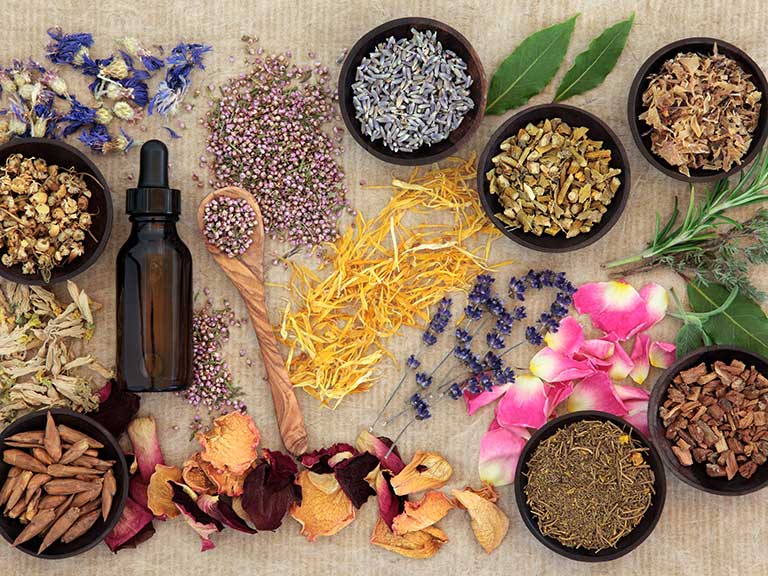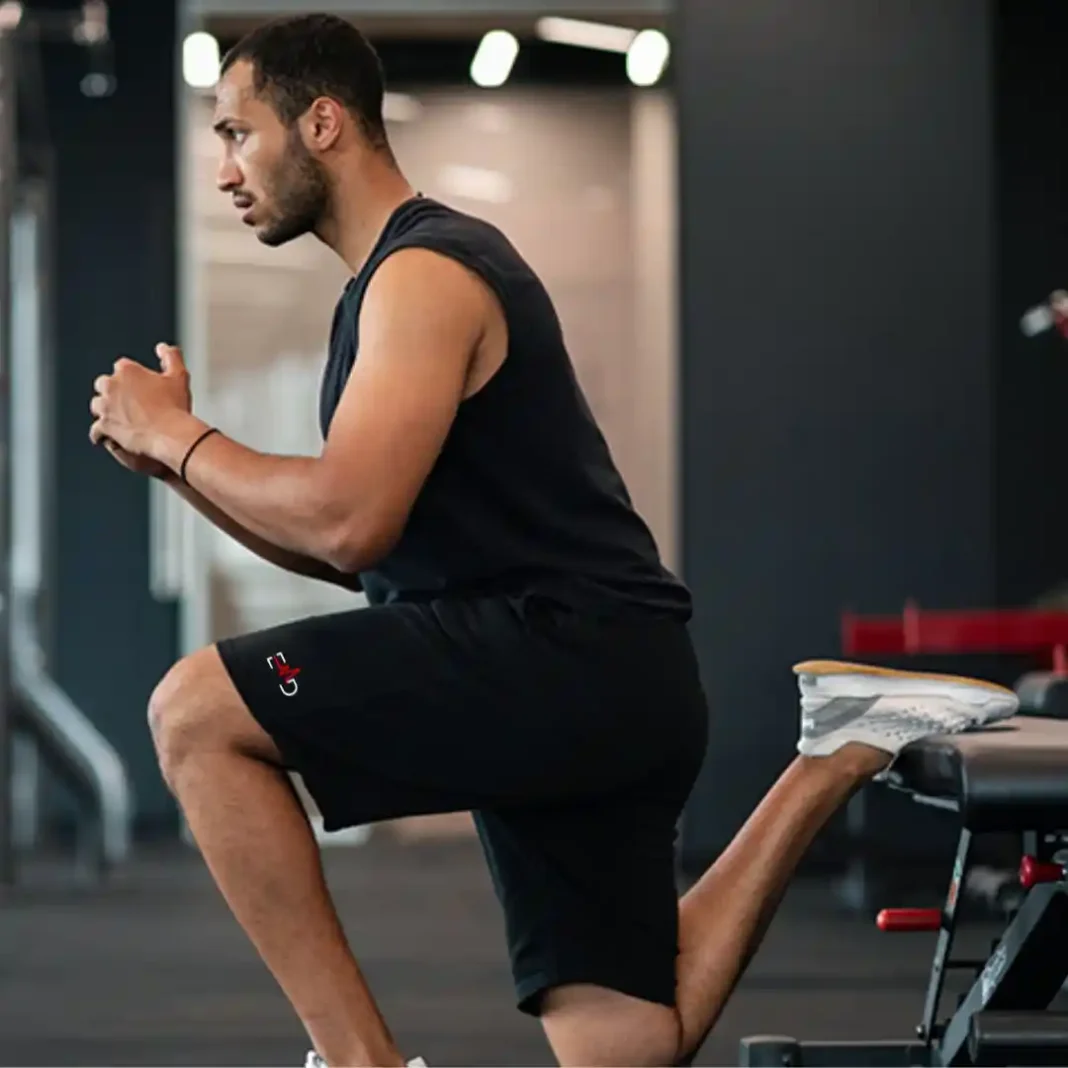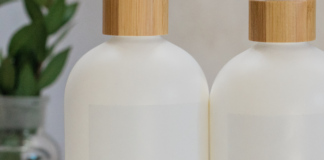Exercise Daily – In today’s fast-paced world, stress and anxiety are common issues affecting people of all ages. Whether it’s the demands of work, family, or the challenges of daily life, anxiety symptoms can take a toll on both our mental and physical health. But here’s the good news: there are natural remedies that can help you reduce anxiety and promote relaxation without the need for heavy medications or complex treatments. If you’re looking for ways to manage anxiety and reduce stress, this guide on natural remedies is for you.
What is Anxiety and How Does it Affect Us?
Anxiety is a natural stress response, but when it becomes chronic, it can lead to anxiety disorders. People with anxiety may experience symptoms such as racing thoughts, nervousness, excessive worry, or even physical signs like a rapid heartbeat or shortness of breath. Anxiety can disrupt daily activities and interfere with your mental health and overall well-being.
Why Turn to Natural Remedies for Anxiety?
Natural remedies offer an alternative to traditional medications, helping you manage anxiety symptoms without the potential side effects of prescription drugs. Many people find relief in natural treatments that can calm their nerves, reduce stress, and promote relaxation. Plus, natural remedies are often more accessible and affordable.

10 Effective Natural Remedies to Help You Manage Anxiety
Suppose you’re looking for natural ways to reduce anxiety, consider incorporating some of these remedies into your daily routine. These natural remedies for anxiety are designed to help you relax, calm your nerves, and find relief from symptoms of anxiety.
1. Aromatherapy – The Power of Essential Oils
Aromatherapy is one of the most effective natural remedies for anxiety. Essential oils like lavender, chamomile, and bergamot can have a calming effect on the mind. You can diffuse these oils in your home, apply them to your skin (with a carrier oil), or even add them to a relaxing bath. Studies have shown that aromatherapy can reduce anxiety symptoms and promote a sense of relaxation.
2. Chamomile Tea – A Soothing Beverage for Stress Relief
Chamomile tea has been used for centuries to promote relaxation. This herbal tea is known for its calming effects and can help reduce anxiety symptoms. Drinking a warm cup of chamomile tea before bed can help you unwind and relax, making it easier to fall asleep and improve your overall mental health.
3. Deep Breathing – A Simple Yet Powerful Strategy for Relaxation
One of the quickest ways to calm your nerves is through deep breathing exercises. When you feel anxiety creeping in, take a moment to focus on your breath. Inhale deeply through your nose, hold for a few seconds, and exhale slowly through your mouth. This simple act helps to slow your heart rate, lower blood pressure, and activate your body’s relaxation response.
4. Mindfulness Meditation – Be Present, Reduce Anxiety
Mindfulness meditation involves focusing on the present moment without judgment. By practicing mindfulness, you can quiet your mind, reduce anxiety, and learn to manage stress better. Meditation can help you stay calm in stressful situations and reduce anxiety symptoms over time. You can start with just a few minutes a day, and gradually increase your practice.
5. Progressive Muscle Relaxation (PMR) – Release Physical Tension
Progressive muscle relaxation (PMR) is a relaxation technique that involves tensing and then relaxing each muscle group in your body. By practicing PMR, you can release physical tension and promote relaxation. This technique is particularly effective for people who experience physical symptoms of anxiety, like muscle tightness or a racing heart.
6. Herbal Supplements – Nature’s Stress Relievers
Several herbal supplements have been shown to help manage anxiety symptoms. For example, valerian root, passionflower, and lemon balm are all known for their calming effects. While these herbs are generally safe, it’s always a good idea to talk with your doctor before taking any new supplements, especially if you’re already on medication.
7. Exercise – Move Your Body to Reduce Anxiety
Exercise is one of the best natural remedies for anxiety. Physical activity releases endorphins, the body’s natural mood elevators, which can help reduce anxiety and stress. Whether it’s yoga, jogging, or even a brisk walk, regular exercise can help you manage anxiety and improve your mental health over time.
8. Healthy Diet – Food Can Influence Your Mood
What you eat can have a significant impact on your mood and anxiety levels. A diet rich in complex carbohydrates, leafy greens, and omega-3 fatty acids can help balance your mood and reduce anxiety symptoms. Avoiding excessive caffeine and sugar can also prevent anxiety spikes, as these can contribute to stress and nervousness.
9. Talk Therapy – Open Up to Reduce Stress
Speaking with a mental health professional is an excellent strategy for coping with anxiety. Talk therapy, especially cognitive behavioral therapy (CBT), can help you identify the root causes of your anxiety and develop strategies to cope. Discussing your feelings with a therapist can also provide emotional relief and help you manage anxiety more effectively.
10. Social Support – Connection Is Key
Having a strong support system is essential when managing anxiety. Talking to friends, family, or support groups can help you feel less isolated and more in control of your anxiety. Sometimes, simply sharing your experiences with others can provide relief and help you manage stress.

Ways to Treat Anxiety Naturally and Effectively
If you’re looking to treat anxiety naturally, it’s important to adopt a holistic approach. Combining several of the remedies mentioned above can be more effective than relying on just one method. Incorporate relaxation techniques, physical activity, and healthy lifestyle changes into your daily routine for the best results.
How Natural Remedies Can Help with Anxiety Symptoms
Natural remedies can provide relief from a variety of anxiety symptoms, including racing thoughts, excessive worry, and physical tension. By using these remedies, you can lower your stress levels and create a sense of calm. However, it’s important to remember that natural remedies are not a substitute for professional treatment if you have an anxiety disorder. Always consult with a healthcare professional before starting any new treatment for anxiety.
The Role of Nature in Relaxation
In our busy lives, we often forget the healing power of nature. Stepping outside, even for a few minutes, can work wonders for our mental health. Whether it’s a quiet walk in the park or simply sitting in your backyard, nature has a unique ability to calm the mind and reduce anxiety. Here are some natural ways to reconnect with the outdoors and use nature as a tool for relaxation.
Forest Bathing: Reconnecting with Nature
Forest bathing, a Japanese practice known as Shinrin-yoku, involves immersing yourself in a forest environment to improve your mental and physical well-being. The concept is simple: spend mindful time in a wooded area, breathing deeply and engaging your senses. Studies have shown that forest bathing can lower cortisol levels, reduce blood pressure, and promote relaxation. It’s a powerful way to reconnect with nature and leave stress behind.
Gardening as a Stress-Relieving Hobby
There’s something magical about digging your hands into the soil and watching plants grow. Gardening not only provides a sense of accomplishment but also helps to lower stress levels. Tending to plants can be a form of mindfulness, keeping you present in the moment. Plus, being surrounded by greenery can uplift your mood and create a calming environment.
The Healing Power of Outdoor Walks
A simple walk outdoors can do wonders for your mental health. Whether it’s a stroll through your neighborhood or a hike in the mountains, walking in nature reduces anxiety symptoms and boosts creativity. The combination of physical movement and fresh air stimulates endorphin production, helping you feel more relaxed and refreshed.
The Importance of Stress Management for Mental Health
Effective stress management is essential for maintaining good mental health. Chronic stress can contribute to the development of anxiety disorders, so it’s important to find healthy ways to manage stress. The natural remedies we’ve discussed can play a crucial role in reducing anxiety and promoting relaxation, but incorporating other stress management techniques, like time management and relaxation practices, can also help you maintain a balanced life.
When to Seek Professional Help for Anxiety
If your anxiety symptoms are severe or persistent, it’s important to talk to a mental health professional. A doctor may prescribe medication or recommend therapy to help manage anxiety. Cognitive behavioral therapy (CBT) is a common treatment for anxiety disorders and can be combined with natural remedies for a comprehensive approach.
Common Symptoms of Anxiety and How to Cope
Anxiety symptoms can vary from person to person, but common signs include restlessness, rapid heartbeat, muscle tension, and difficulty sleeping. If you experience these symptoms regularly, it’s essential to take action to manage your anxiety. Natural remedies, along with professional treatment, can help you cope with anxiety and improve your quality of life.
Technology and Relaxation
While technology often gets a bad rap for contributing to stress, it can also be a valuable tool for relaxation when used mindfully. From apps that guide you through meditation to tools that create calming environments, here’s how technology can help you unwind.
Apps to Help You Meditate and Relax
Meditation apps like Headspace and Calm are designed to make mindfulness accessible to everyone. These apps provide guided meditations, breathing exercises, and soothing sounds to help you reduce anxiety and focus on the present moment. With just a few minutes a day, you can create a consistent relaxation practice.
Using White Noise for Better Sleep
Struggling to fall asleep? White noise machines or apps can help block out distracting sounds, creating a peaceful environment for rest. Sounds like rain, ocean waves, or gentle wind can soothe your mind and promote deep relaxation, making it easier to drift off into a restful sleep.
Virtual Reality for Anxiety Management
Virtual reality (VR) isn’t just for gaming—it’s also being used as a tool for stress relief. VR relaxation apps allow you to immerse yourself in serene environments, like a quiet beach or a lush forest, from the comfort of your home. This technology can provide a quick mental escape, helping you unwind and recharge.

Long-Term Strategies for Mental Health
While short-term remedies are helpful, building long-term strategies for mental health ensures lasting benefits. Here are some ways to develop resilience and create a sustainable plan for relaxation.
Building Resilience Against Anxiety
Resilience is the ability to bounce back from stress and challenges. You can build resilience by practicing gratitude, maintaining a positive outlook, and setting realistic goals. Engaging in regular self-care, such as exercising and eating nutritious meals, also strengthens your mental and emotional health over time.
The Role of Community Support
Never underestimate the power of a supportive community. Talking to friends, family, or joining support groups can provide emotional relief and practical advice. Knowing you’re not alone in your struggles can make managing anxiety much more manageable.
How to Create a Personalized Relaxation Plan
Everyone’s path to relaxation is unique. To create your plan, start by identifying the natural remedies and activities that resonate with you. Combine them with regular practices like mindfulness, exercise, and quality sleep. Evaluate your plan periodically to see what’s working and adjust as needed. Having a personalized relaxation plan can help you stay consistent and ensure long-term mental health benefits.
Lifestyle Changes to Support Mental Health and Reduce Anxiety
Making small lifestyle changes can significantly improve your mental health and reduce anxiety symptoms. Prioritize sleep, eat a balanced diet, engage in regular physical activity, and find time for relaxation. These changes, when combined with natural remedies, can help you maintain a calm, focused mind.
Final Thoughts
Anxiety is a common part of life, but it doesn’t have to control you. By incorporating natural remedies like aromatherapy, deep breathing, and herbal supplements, you can reduce anxiety symptoms and promote relaxation. Remember, managing anxiety is a journey, and it’s important to find what works best for you. Whether you use one remedy or a combination of several, these natural methods can help you cope with anxiety and stress.
FAQs – Promote Relaxation with These Natural Remedies
Q: What are the best natural remedies for anxiety?
A: The best natural remedies for anxiety include aromatherapy with essential oils, chamomile tea, deep breathing exercises, mindfulness meditation, and regular exercise.
Q: How can I reduce anxiety naturally at home?
A: To reduce anxiety naturally, try deep breathing, practicing mindfulness, drinking calming herbal teas like chamomile, and exercising regularly to release stress.
Q: Can herbal supplements help with anxiety?
A: Yes, herbal supplements like valerian root and passionflower can have calming effects and may help reduce anxiety symptoms. However, consult with a healthcare professional before trying any new supplements.
Q: Is it necessary to see a therapist if I have anxiety?
A: If your anxiety is severe or persistent, it’s important to speak with a mental health professional. Therapy, particularly cognitive behavioral therapy (CBT), can be highly effective in treating anxiety.
Q: Can exercise help reduce anxiety?
A: Yes, regular exercise is one of the most effective natural remedies for anxiety. It helps release endorphins, which improve mood and reduce stress.




